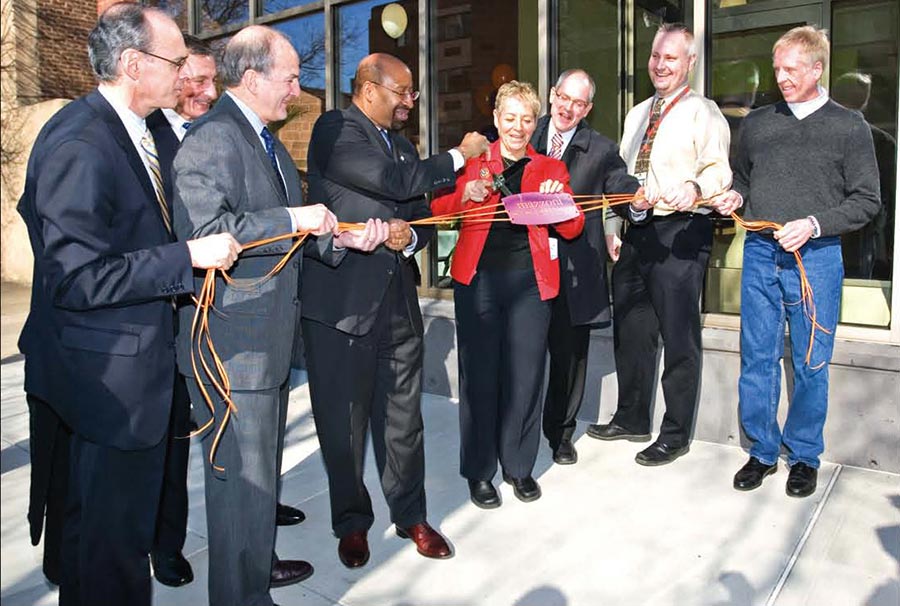This month marks the 35th anniversary of one of Philadelphia’s leading LGBT community organizations, Mazzoni Center.
“It has been an incredible journey,” Mazzoni CEO Nurit Shein said. “At times heartbreaking, at times wonderful — but each new day presents an inspiring challenge as we work to ensure that the individuals who make up the extremely diverse LGBT communities in the Philadelphia region receive the respect, dignity and quality of health care that they deserve.”
The center has its origins in the altruistic endeavors of a small group of volunteers who started meeting in 1979 — originally as a planning subcommittee of the Gay Community Center of Philadelphia — with the goal of improving the health of the LGBT community in the region. The organization was originally called Lavender Health Project, incorporated as Philadelphia Community Health Alternatives in 1981 and adopted the name Mazzoni Center in 2003 after longtime volunteer and board member Dr. Peter Mazzoni, who died in 1990.
Responding to the AIDS epidemic in the early ’80s occupied the majority of the agency’s resources for about the next 15 years, with many milestones along the way: In 1985, the organization established the first HIV testing site in Pennsylvania; launched a housing subsidy program in 1986; and opened the first food bank for people with HIV/AIDS in 1989.
After weathering the height of the HIV/AIDS crisis, the agency broadened its mission to include a more holistic approach to LGBT health. Over time, Mazzoni added mental-health counseling, LGBT legal services and a primary-care practice that sees approximately 15,000 patients a year.
Shein attributes the most impactful changes over the past few decades to the transition from a primarily prevention-based organization to one that provides direct medical services.
“Mazzoni started off as an LGBT health organization that was only providing information and prevention services and, with the inclusion of behavioral health and the opening of the medical center, began offering direct medical and mental-health services,” Shein said. “That has been an enormous change and [led to] growth in the organization.”
Today, Mazzoni has 120 full-time employees operating out of three locations in Center City. It provides a wide range of services: primary, mental and behavioral health care, LGBT legal services, HIV and STD testing, a food bank and housing subsidies for families and individuals affected by HIV, support groups, outreach and education.
The addition of legal services opened the doors to even better health-related outcomes in the medical-services department, as collaboration became the norm, Shein said.
“We have added and expanded the legal-services department in the last five years, which really opened it up to collaboration within our departments. Many of our clients also face legal issues. By helping removing these threats, we are able to have better health outcomes.”
Shein envisions the growth of Mazzoni’s research department.
“Right now we are collaborating with a few institutions on some clinical trials, and institutions are coming to us wanting to collaborate,” she said. “Long-term, I would like to be able to hire Ph.Ds to do in-house research.”
According to Shein, increased research capacity will enable Mazzoni to push for better-informed policy around LGBT health issues.
“We are sitting on lots of policy and data that can inform policies, laws and health outcomes,” she said.
Even with the advent of an internal research division, Shein sees direct medical services remaining a cornerstone of the organization’s efforts.
“Even though there has been huge progress in the development of LGBT inclusion within mainstream health care, I think there will still be a need for an org that specifically targets LGBT.”
Shein said Mazzoni sees more than 2,000 transgender patients a year.
“Proof,” she said, “that there is still a huge need out there. And we are meeting part of it.”
For more information, visit www.mazzonicenter.org.

